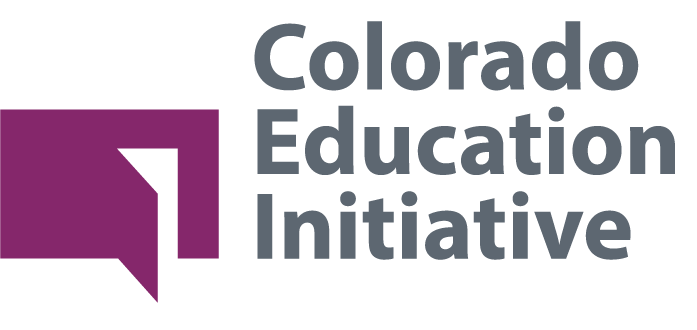Leading for Transformation – Part 2 of 3
February 7, 2022
By Rebecca Holmes, CEI President and CEO

This month’s newsletter picks up where our last left off – digging in on the second of three behaviors we’re seeing from those leading for transformation in this moment. Now more than ever, deep listening with families and communities is one of the highest-leverage moves education leaders can make to build the kind of trust, clarity, and creativity required for breakthrough change. Families have a lot to share right now and we’ve been encouraged by an uptick in open systems thinking and actions by many district and school leaders. The current phase of recovery has heightened community-driven redesign as key to both igniting authentic reengagement now and envisioning renewed purpose for education that can bridge into the future.
Led by CEI’s Vice President of Community Partnerships Landon Mascareñaz, the open systems principles that guide our family and community partnership work allow school districts to step back and reconsider the “public” in public education, employing new tools and mindsets to build trust and engage in creatively setting a path forward despite perceived divisions in our communities.
In districts across Colorado, we see school and district leaders explicitly investing in co-creation and co-production with families and communities as central to their recovery priorities – particularly to inform learning, budget, and reengagement strategies. Inspiring examples of this leadership in practice that CEI has been proud to partner in include:
- Articulating a vision for family and community partnership to accelerate strategic goals – spotlight on Greeley-Evans School District 6
- Co-creating and co-producing strategic plans grounded in a community vision for student outcomes – spotlight on Alamosa Schools
- Developing partnerships and programs that center family needs – spotlight on regional Recovery Summer partnerships
- Prioritizing community-informed measures of student outcomes and other authentic indicators of school quality – spotlight on Compass Academy
Articulating a vision for family and community partnership to accelerate strategic goals
Greeley-Evans School District 6 launched a family and community partnership strategic plan and engagement process to drive and build capacity for high impact partnership aligned with their Innovation 2030 Strategic Plan. Led by Assistant Superintendent Stacie Datteri, Director of Cultural Excellence and Parent Engagement Jesse Tijerina, and Family Center Coordinator David Reyes, Greeley organized a core team to conduct empathy interviews and gather feedback from family members, teachers, and leaders from a variety of backgrounds on community needs for family partnership. The team used this work to construct a vision statement, guiding beliefs, and strategic objectives that will be formalized in partnership with their school board this spring.
“District 6 will embrace authentic, meaningful, and collaborative relationships with our families to sustain belonging and trust where we are partners in education.” – Draft vision statement
Co-creating and co-producing strategic plans grounded in a community vision for student outcomes
Alamosa Schools launched a campaign to recruit community members to co-create their new strategic plan, led by Superintendent Diana Jones and Assistant Superintendent Luis Murillo – each serving their first year in these roles. This process is designed to foster deep listening with and ensure the voices of families and communities in multiple ways, including participation in a Steering Committee and community-wide listening sessions, creation of a graduate profile for student outcomes, development of a community-informed strategic plan, and built-in feedback loops throughout.
This work was featured in a recent podcast of The Valley Pod, highlighting the relationship between inclusive partnership and co-creation in Alamosa and fostering pride in Alamosa graduates and their learning experiences K12.
“We often hear that people want their voices to be heard and this is a wonderful opportunity for people to join forces with us as we begin to create a strategic action plan to move Alamosa School District forward.” – Superintendent Jones
Developing partnerships and programs that center family needs
Eleven regional partnerships drove innovative Recovery Summer programs throughout summer 2021 aimed at supporting families through direct investments and stronger partnerships. District and school leaders partnered with community-based and out-of-school time organizations to leverage existing partnerships and forge new ones across their communities to offer comprehensive programs that met the unique needs of students and families, including support for authentic family empowerment and social emotional needs. Commitments to collaboration enabled partnering organizations to expand both the number of students and families served and the comprehensiveness of services provided. In many cases, learnings from these targeted, short-term efforts have been able to inform use of recovery resources to continue partnership beyond the summer.
This work is featured in the newly released 2021 Recovery Summer report by CEI and Early Milestones Colorado.
“Grantees shared a belief that the COVID-19 pandemic positively changed the landscape of community partnership forever.” – 2021 Recovery Summer report
Prioritizing community-informed measures of student outcomes and other authentic indicators of school quality
Compass Academy revamped its strategic planning process in 2021 to design and use a more human centered approach to advancing major improvement strategies. A focus of this work included family and community partnership to build input and output indicators aligned to the school’s priority areas of academics, whole child, and culture/climate. Led by Executive Director Marcia Fulton, school leaders launched a community and stakeholder engagement plan to elevate traditionally marginalized voices, design systems through which family and community members inform a set of holistic measures of student success, and create transparent tools for tracking and sharing progress toward these goals. The Compass team has rolled out a draft rubric and dashboard for ongoing family and community engagement as a result of this work.
“We have spent hours digesting the voices of our community through surveys, listening sessions, and in our everyday conversations. It is a mechanism for disrupting a historical oppressive practice of top-down decision making. We will continue to leverage systems and structures to ensure that those who are most impacted are “in the room where it happens” as we continue to refine our school improvement process and platform.” – Total Wellness Dashboard and Review Tool
Our February newsletter is full of new opportunities and announcements for leaders and teachers.
